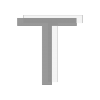Relations
Person
| Start | End | Other relation type | Related Person |
|---|---|---|---|
| — | — | Advisory Board [REVERSE] | Soto, Jesús Huerta de |
| — | — | Staff [REVERSE] | Springer, Walter |
| — | — | Staff [REVERSE] | Stratmann, Thomas |
| — | — | Staff [REVERSE] | Stroup, Richard L. |
| — | — | Supervisory Board [REVERSE] | Talley, Chris |
| — | — | Supervisory Board [REVERSE] | Tomaschitz, Markus |
| — | — | Supervisory Board [REVERSE] | Unterberger, Andreas |
| — | — | Staff [REVERSE] | Vanberg, Victor |
| — | — | Staff [REVERSE] | Vanberg, Viktor J. |
| — | — | Staff [REVERSE] | Vaughn, Karen |
Texts
arbeitsmodus_ziele
The Hayek Institute seeks to disseminate ideas of its namesake as well as of represenatives of the Austrian School in German-speaking countries. The Institute publishes studies, opinion pieces, articles and announcements. Conferences and events like policy circles and panel discussions are organized. In the years 2008-2010 195 news entries have been made on the website, 30 books and two booklets have been published. The think tank cooperates intensively with scientists and pracitioners with a business background.
einleitung
The Institute was named after the Austrian economic scientist Friedrich August von Hayek (1899-1992). The Hayek Institute promotes an economic orientation, called Austrian School. It is privately run and was designed according to the example of the [[Hoover Institution]]. Apart from the headquater in Vienna, the institute maintains a branch in Standford (USA).
notes
The Hayek Institute publishes the "International Library of Austrian Economics".
organisation_finanzierung_text
The supervisory board of the Hayek Institute is composed of 15 members. The advisory board has 11 members.
The Hayek Institute was once member of the Stockholm Network.
